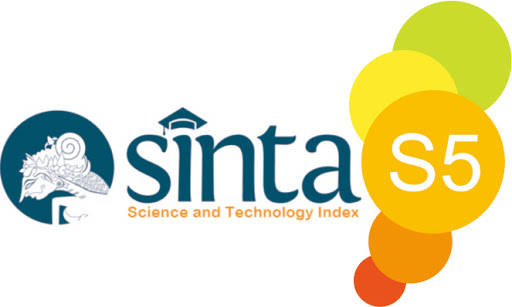Management of Zakat as the Instrument to Improve Economic Recession of COVID-19
DOI:
https://doi.org/10.47312/aifer.v5i01.368Abstract
The purpose of ziswaf management is to restore the chaotic condition of the country due to Covid-19, especially in the economic sector. The purpose of this research is to analyze how the mechanism and implementation of zakat distribution in response to the Covid-19 pandemic. The method used is literature study method. The literature study in this research is technical literature and non-technical literature. Based on the results of the analysis, BAZNAS has distributed zakat funds to three sectors, namely the field of health emergencies, socio-economic emergencies, and the field of existing program sustainability. From the results of this analysis, it can be concluded that the handlers of zakat implementation in handling Covid 19 have a very big influence. The total distribution of funds for the three sectors reached Rp. 7,578,461,063.
Keyword: Ziswaf, Economics, Covid-19
Downloads
References
Afifuddin, K. &. (2020). Penggunaan Dana Zakat Pada Korban Covid-19 Perspektif Maqashid Syariah. Islamic Law.
Al-Ghazzi, M. Q. (2005). Fath al-Qarib fi Sharh Alfāẓ al-Taqrīb. Beirut: Dar Ibn Hazm.
Al-Sharbani, M. b.-K. (1321). Al-Iqna fi Hall Alfaz Abi Shujā’. Mesir: Al-Matba'at al-Khairiyyat.
Amalia, & Mahalli, K. (1999). Potensi dan Peranan Zakat Dalam Mengentaskan Kemiskinan di Kota Medan. Jurnal Ekonomi Dan Keuangan.
Covid-19.
BAZNAS. (2020). Laporan Baznas dalam Penanganan Pandemi Covid-19. Jakarta: Badan Amil Zakat Nasional.
EZ, I., & Maisyal, N. (2020). Pendayagunaan Zakat Untuk Penanggulangan Pandemi Covid-19 Perpektif Filsafat Hukum Islam. Al - Muamalat: Jurnal Hukum Dan Ekonomi Syariah, 5(1), 1–26. https://doi.org/10.32505/muamalat.v5i1.1849
Fitri, M. (2017). Pengelolaan Zakat Produktif sebagai Instrumen Peningkatan Kesejahteraan Umat. Economica: Jurnal Ekonomi Islam. https://doi.org/10.21580/economica.2017.8.1.1830
Kadir, A., Hakim, M. R., Syam, F., & Karim, M. S. (2020). Pengunaan Dana Zakat Pada Korban Covid-19 Perspektif Maqashid Syariah. Al-Tafaqquh: Journal of Islamic Law, 1(2), 107. https://doi.org/10.33096/al-tafaqquh.v1i2.61
KNEKS. (2020, May). Peran Inovasi Zakat dalam Menanggulangi Covid-19. Retrieved from https://knks.go.id/berita/251/peran-inovasi-zakat-dalam-menanggulangi-covid-19?category=1
Maulana, M. I., Rahman, A., & Setiawan, A. I. (2019). Implementasi pendistribusian Zakat Produktif dalam meningkatkan ekonomi masyarakat. https://doi.org/10.15575/tadbir
Mujieb, M. A. (1994). Kamus Istilah Fiqih. Jakarta: PT Pustaka Firdaus.
Nurhidayat, N. (2020). Strategi Fundraising Zakat Pasca Pandemi Covid-19. SALAM: Jurnal Sosial Dan Budaya Syar-I, 7(8), 737–748. https://doi.org/10.15408/sjsbs.v7i8.16553
Prasanti, D. (2018). Penggunaan Media Komunikasi Bagi Remaja Perempuan Dalam Pencarian Informasi Kesehatan. LONTAR: Jurnal Ilmu Komunikasi. https://doi.org/10.30656/lontar.v6i1.645
Rezkia, S. M. (2020). Langkah-Langkah Menggunakan Teknik Data Kualitatif.
Sahbani, A. (2020, May). Retrieved from hukum.online.com: https://www.hukumonline.com/berita/baca/lt5ec74915e853d/sekelumit-peran-zakat-kala-pandemi-covid-19/.
Saputra, H. (2020). Zakat Sebagai Sarana Bantuan Bagi Masyarakat Berdampak Covid-19. Al-Ijtima`i: International Journal of Government and Social Science. https://doi.org/10.22373/jai.v5i2.549
Sari, E. K. (2006). Pengantar Hukum Zakat dan Wakaf. Jakarta: PT. Grasindo.
Suryahadi, A., Al Izzati, R., & Suryadarma, D. (2020). The Impact of COVID-19 Outbreak on Poverty: An Estimation for Indonesia (Draft). SMERU Working Paper, April(April), 1–20. Retrieved from http://smeru.or.id/en/content/impact-covid-19-outbreak-poverty-estimation-indonesia
Zuhdi, M. (1994). Masail Fiqhiyah (Kapita Selekta Hukum Islam). Jakarta: CV. Haji Masagung
Downloads
Published
Issue
Section
License
Authors who publish with this journal agree to the following terms:Authors retain copyright and grant the journal right of first publication with the work simultaneously licensed under a Creative Commons Attribution License that allows others to share the work with an acknowledgement of the work's authorship and initial publication in this journal.
Authors are able to enter into separate, additional contractual arrangements for the non-exclusive distribution of the journal's published version of the work (e.g., post it to an institutional repository or publish it in a book), with an acknowledgement of its initial publication in this journal.
Authors are permitted and encouraged to post their work online (e.g., in institutional repositories or on their website) prior to and during the submission process, as it can lead to productive exchanges, as well as earlier and greater citation of published work (See The Effect of Open Access).















